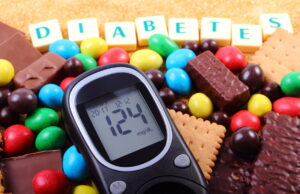Everything Family Caregivers Need to Know About Diabetes
There is so much to do when someone has diabetes. While it does depend on the treatment plan that your elderly loved one’s doctor has set up, there certain things that are common when it comes to managing diabetes. As a family caregiver, it is important to learn more about diabetes – from helping your elderly loved one to check their glucose levels to helping them eat healthier.
Importance of Managing Diabetes
If your elderly loved one has diabetes, it is very important that it is managed well. If diabetes isn’t treated properly, it can lead to severe health issues. Some of the health issues that can arise if your elderly loved one isn’t following the treatment plan their doctor set up for them include the following:
- Eye disease

Home Care in Hudsonville, MI: Seniors and Diabetes
- Kidney disease
- Nerve issues
- Stroke
- Cardiovascular disease
- Increased risk of cancer
Increased risk of Alzheimer’s disease
As you can see, many harmful things can happen if your elderly loved one doesn’t manage their diabetes. Now that you know this, if you don’t have enough time to help them manage their diabetes, it would be best to hire home care providers that can help.
Diabetes Symptoms to Learn More About
If your elderly loved one has diabetes, it is important that you and all other family caregivers know about the symptoms of this disease. There are many symptoms that people with type 2 diabetes often experience. Some of these symptoms are mild. However, they can be moderate to severe, as well. Some of the symptoms that you, other family caregivers, and home care providers should look for in your elderly loved one include the following:
- Increased hunger and/or thirst
- Feeling fatigued
- Losing weight unintentionally
- Urinating more frequently than normal
- Having blurry vision
- Having bruises and/or cuts that heal slower than normal
- Having frequent skin infections
If your elderly loved one is having any of these symptoms, be sure they get an appointment with their doctor as soon as possible. If they don’t already have a diagnosis, the doctor can run the necessary tests. If they do have a diagnosis, these symptoms could mean that things aren’t being managed well enough.
Conclusion
Diabetes can be tough to manage. However, if you suspect your elderly loved one has diabetes, it is important to have them see their doctor. Once a treatment plan is in place, you and home care providers can make sure your elderly loved one follows that plan. You might need to remind your elderly loved one that not following their doctor’s treatment plan could be fatal.
If you or someone you know needs help with Home Care in Hudsonville MI, contact Gauthier Family Home Care. We provide quality and affordable home care services in our community. Call us at (616) 258-2300 for more information.
Sources
https://www.cdc.gov/diabetes/basics/diabetes.html
https://www.nutrition.gov/topics/diet-and-health-conditions/diabetes
- Ensuring a Smooth Transition From Hospital to Home - June 4, 2025
- Caregiver of the Month – June 2025 - June 2, 2025
- Common Sense Summer Tips for Seniors to Help Them Beat the Heat - May 28, 2025

